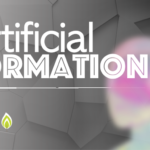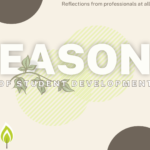![]() This content is brought to you by the Association for Christians in Student Development (ACSD), a volunteer membership organization committed to equipping and challenging faithful professionals to infuse their Christian faith into student development practice and scholarship. Thoughtful content such as this is made possible by volunteer contributions and the financial support of membership dues. Interested in becoming a member for more awesome content just like this? Join today by clicking here!
This content is brought to you by the Association for Christians in Student Development (ACSD), a volunteer membership organization committed to equipping and challenging faithful professionals to infuse their Christian faith into student development practice and scholarship. Thoughtful content such as this is made possible by volunteer contributions and the financial support of membership dues. Interested in becoming a member for more awesome content just like this? Join today by clicking here!
In a previous article for ACSD Ideas, I was able to share thoughts related to how our student development teams can cast a faithful vision for the benefit of our students and their flourishing. Casting vision orients a student development team towards shared goals, priorities, and outcomes. The process can also bolster staff culture by aligning aims and values across the department. It further establishes healthy team dynamics when vision casting is participatory and iterative, two approaches that ensure (1) that every staff member’s voice is included and (2) that regular and ongoing discussion of the vision postures the team in a way that is responsive to the ever-changing landscape of higher education.
However, after the process of casting vision, any team should be ensuring its lasting integration into departmental culture. Casting a faithful vision is one thing, but the “iterative” piece that helps sustain an enduring faithful vision is another thing entirely, and one that will involve various approaches to ensure the team remains engaged over time. Once you cast a vision for your student development department, that vision is just a collection of words and ideas unless it alters the programs, services, and people on your team. It is a joint effort between student development leaders and the entire staff to be able to carry that vision into the future and enact practices that make it a reality to benefit the growth and education of students.
Thus, we should regularly be asking ourselves and our colleagues: how can we avoid empty jargon, jaded dispositions, burnout, or blurred focus when it comes to our departmental vision for student development? In what ways can we ensure our vision statements actually influence action, create impact, and help our students thrive through Christ-enlivened means? I would like to suggest two considerations for anyone working in student development for sustaining faithful vision and ensuring our teams stay engaged with our established goals, priorities, and values: staff soul-care and student involvement.
Staff Soul-Care
The co-curricular portion of the student experience supplements classroom instruction with outside-the-classroom experiences, services, and programs that help students apply learning to real life situations in conjunction with academic outcomes. Student development personnel invest a great deal of time, energy, resources, relational capital, and emotions into the student experience. Over time, burnout can and does take its toll on those of us in the industry due to the emotional and overwhelming nature of working with college students. Student development personnel must find time to care for themselves in the midst of the taxing work of cultivating student life on college campuses (Jackson, 2019). For those of us who journey with Christ and work in student development, caring for our souls is a vital piece of self care in sustaining our professional journeys.
Anyone who flies on an airplane with any frequency can recall the standard safety protocols that flight attendants share pre-takeoff: “in case of emergency, oxygen masks will deploy; please place your own oxygen masks on first before assisting someone else with their mask.” In the same way, I contend that personal soul-care is necessary for any student development leader to be able to then pour out into the lives of the students on our campuses. Supporting the wellbeing of staff in turn helps “balance the colleges’ environmental challenges,” while engaging in intentional soul-care can aid student development staff from being “diverted from mission-focused work” (Chelsen & Diddams, 2019).
Student development leaders should model both soul-care and spiritual formation in their own lives (Opitz, 2018), and also promote and offer space for team members to experience spiritual growth and development (Glanzer et al., 2020). Ensuring that the student development team is flourishing in their discipleship journeys can be a major piece of a broader staff-care approach that helps personnel stay aimed towards mission-focused work. Once a vision for student development is established, it can only be embedded into departmental culture through healthy personnel who are dedicated to the ongoing work. Having open and encouraging dialogue about soul-care is the first step, and actually enacting practices and rhythms for staff spiritual development is the second.
Further, student development leaders must ensure they are modeling soul-care for the staff members on their teams, so that soul-care becomes less of an add-on and more of an infused part of culture. These collective soul-care efforts create an atmosphere “characterized by virtues of trust and honesty, an affirmation of common Christian essentials, and intentional time for conversation,” which create shared experiences that connect a team towards individual and communal success. Faithful activities such as prayer and devotions, reading groups, mentorship, chapel engagement, sabbath opportunities, and many more practices can help revitalize individuals for continued service of students (Glanzer et al., 2020). Thus, soul-care serves as one meaningful way to sustain the faithful vision of the department, by ensuring team members are healthy and engaged personally so as to further champion and advance overall department goals and outcomes.
Student Involvement
“To ensure vision permeates campus life, student development staff must regularly spend time with and involve our students.”
Healthy student development staff is important, and a second equally critical factor for ensuring vision for student development endures is healthy connections with students. To ensure vision permeates campus life, student development staff must regularly spend time with and involve our students. Far too often we talk about and at students, and often speak over them as to how and why our programs are best for them. While it is true that we are the staff hired and trained to serve our college students in their educational journeys, I contend we cannot continue to leave student voices out of the conversation when developing a vision for thriving student development programs (Tederman, 1995). Once a vision is cast that outlines goals and priorities for student development, staff members should regularly engage students in conversations, reflections, and assessments on how to incorporate programs and services that achieve desired outcomes.
Resident Assistants (RA’s) are an excellent group of student leaders who can be involved in the sustaining of vision on any campus. RA’s help shape an institution’s culture, especially residence life culture. RA’s are communicators for the university, serving as a liaison between the student development administration and the entire student body (Beers, 2015). The Student Government Association and other student organization leaders can also be key in the vision-sustaining process. Inclusion of a wide array of student leaders offers real-time feedback on how services and programs are received and utilized by students.
Further, rather than continually assuming each generation of college student is homogenous, involving students in sustaining the vision of the department helps ensure their needs are also continually reviewed and understood. It is necessary for student development personnel to never lose touch with the actual recipients of the time, care, and attention of our institutional missions. As much as we can involve ourselves not just in the work of student life, but in actual student life itself, we will be able to more faithfully sustain our vision(s) for student flourishing.
Conclusion
Casting vision for student development work is an important participatory and iterative process to establish goals for a desired future. However, sustaining that vision so that it becomes more than just empty words requires ensuring our teams are well cared for and our students are well understood. Soul-care and personal spiritual formation can help Christian student development professionals avoid the harsh realities of burnout. Involving students in the vision-sustaining process keeps student development staff connected to the very individuals who are the recipients of our mission-focused efforts. These intentional approaches can help each team member to stay engaged in their work of achieving a thriving student development program.
References
Beers, S. (2015). The role of the resident assistant in fulfilling the university’s mission: Being part of a larger purpose. In S. Beers & S. Trudeau (Eds.), Making a difference: Empowering the resident assistant. (pp. 29-42). ACU Press.
Chelsen, P.O., & Diddams, M. (2019). A caring community. In D. Moser & T.C. Reams (Eds.), Campus life: In search of community (p. 52-60). IVP Academic.
Glanzer, P. L., Cockle, T. F., Jeong, E. G., & Graber, B. N. (2020). Christ-enlivened student affairs: A guide to Christian thinking and practice in the field. ACU Press.
Jackson, K. P. (2019). Making Sense out of the Senseless: A Framework for Understanding the Impact of Traumatic Events on the Lives of Student Affairs Professionals. In K.L. Treadwell & M.R. O’Grady (Eds.), Crisis, compassion, and resiliency in student affairs: Using triage practices to foster well-being (pp. 19-40). NASPA.
Opitz, D.D. (2018). Call(s) and care(s) in collegiate ministry. In T.W. Herrmann & K.D. Riedel (Eds.), A calling to care: Nurturing college students toward wholeness. ACU Press.
Tederman, J.S. (1995). Advice from the dean: A personal perspective on the philosophy, roles, and approaches of a dean at a small, private, liberal arts college. NASPA







